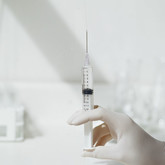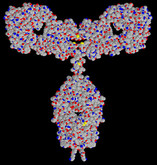Biosimilars/Research
|
Posted 11/06/2021
Yuflyma (CT-P17) is an adalimumab biosimilar, administered at 100 mg/mL that also has the same citrate-free and high concentration formulation of reference adalimumab. To demonstrate the bioequivalence of CT P17 to reference adalimumab, a randomized, double-blind, active-controlled study in subjects with moderate to severe rheumatoid arthritis (RA) was conducted [1]. The study was designed to demonstrate equivalence of efficacy (ACR20* response rate at Week 24) for CT P17 versus reference adalimumab and to evaluate additional efficacy, pharmacokinetics (PK), usability and safety over one year.































